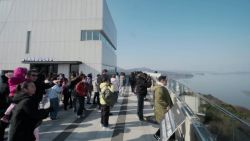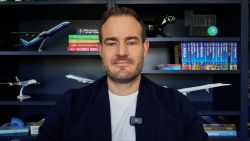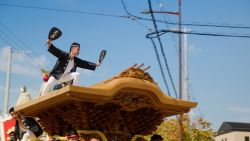I’m sitting on a lounger at a Maldivian resort’s overwater restaurant taking in views of the glimmering Arabian Sea, but I feel uneasy.
I’m not wearing a mask, nor are the other guests, or staff.
Not that there’s a need to: everyone on the palm-fringed private island of Soneva Fushi has been tested for Covid-19 upon arrival, then quarantined in their own villa until they receive fresh negative results.
I’m able to roam the island freely and defy the six-feet minimum social distance measures the world’s been accustomed to since the beginning of 2020.
For just a few days in this Indian Ocean paradise, things feel back to normal in a wildly abnormal year – but this shift takes some getting used to.
Maldives: Now open to all
The Maldives is one of the few holiday destinations open to international tourists right now – Americans included.
The 1,200-island nation reopened its borders in July with no testing or quarantine mandates, then changed course in September to require negative Covid-19 test results for all incoming travelers (96 hours before departure). An online Traveler Health Declaration form also needs to be completed 24 hours before take-off.
Statistically, the Maldives has got its coronavirus situation under control, with under 13,000 cases and 46 total deaths since the pandemic began. It was declared a “safe destination” by the World Travel and Tourism Council on September 15.
Like all countries heavily reliant on tourism, it’s been hit hard by the crisis. According to the World Bank, tourism directly and indirectly accounts for two-thirds of the country’s GDP.
The industry flourished in 2019 as visitor arrivals grew by 14.7% (year on year), with total arrivals reaching a record 1.7 million. Officials were hoping they’d hit 2 million arrivals this year.
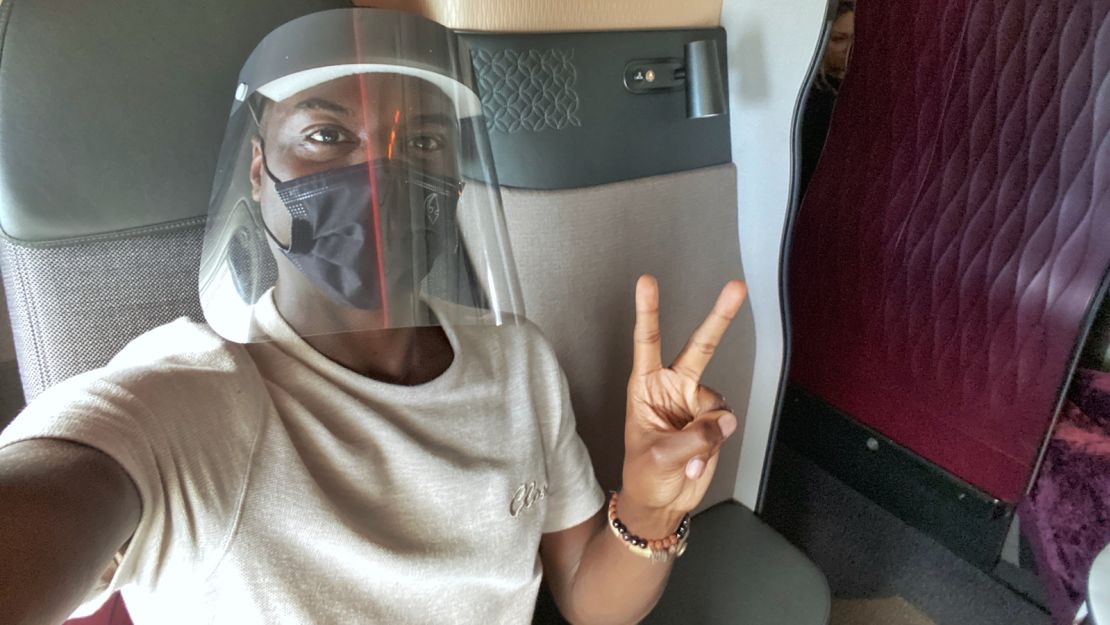
In a statement issued in May, Ali Waheed, the country’s minister for tourism, described the impact of the coronavirus pandemic as “more devastating than the 2004 tsunami and the 2008 global financial crisis.”
Therefore, it’s not surprising it was among the first countries to reopen.
My journey began at New York City’s John F. Kennedy Airport, where I boarded a Qatar Airways flight – it’s one of a dozen or so airlines now servicing the Maldives capital, Male.
While the Maldives has a set of rules for entry, Qatar Airways has its own, too: passengers departing from any high-risk country – including the United States, Brazil, India and the Philippines – must present a PCR Covid-negative test at check-in.
Note the emphasis on “PCR”: I’ve seen would-be passengers at JFK denied boarding passes because they provided a rapid test, and it wasn’t pretty.
During boarding, Qatar Airways passengers must wear their mask and a face shield, which they provide complimentary at the gate.
I did the New York to Doha leg in economy class on a half-empty plane, having a whole row to myself. I then flew in the Qsuites, Qatar Airways’ business -class offering, for the final leg to Malé.
With ample personal space and sliding privacy doors it was definitely my preferred means to socially distance on a flight.
I finally arrived at Maldives’ Velana International Airport in the morning, with the descent above blue blobs of pristine atolls as thrilling as ever from my window seat.
World’s most luxurious quarantine?
Deplaning from business class before most others became a tremendous blessing, as the border control checks were stringent and time-intensive. I approached the border control booth with the handful of documentation required for entry: a print-out of my negative Covid test result, copies of my two resort reservations (Soneva Fushi and Soneva Jani) and a QR code from my completed Traveler Health Declaration form.
After collecting my checked luggage and passing through customs, I found Soneva Fushi’s gracious (and masked) Airport Hosts, who whisked me to a check-in desk for a scheduled seaplane flight to their resort.
A van shuttled me and other resort guests to Soneva Fushi’s dedicated airport lounge, where we kept our distance from one another, nibbled on snacks and completed our resort check-ins until boarding time.
We’d later climb into their private, purple-colored seaplane for a scenic half-hour flight to their “international airport” (a tiny, isolated platform bobbing in the ocean), which was followed by a speedboat cruise to the resort’s outstretched wooden jetty, where masked “Barefoot Butlers” and management staff welcomed us.
I hopped into a buggy with my butler who brings me straight to my massive beachfront villa… the only slice of island life I’d see for the next 20 hours.
Minutes into my quarantine, a lab technician armored in a white hazmat suit entered my compound to administer my in-villa Covid test, swabbing my throat and lightly stabbing my left nostril. He informed me that I’d receive the results the following morning.
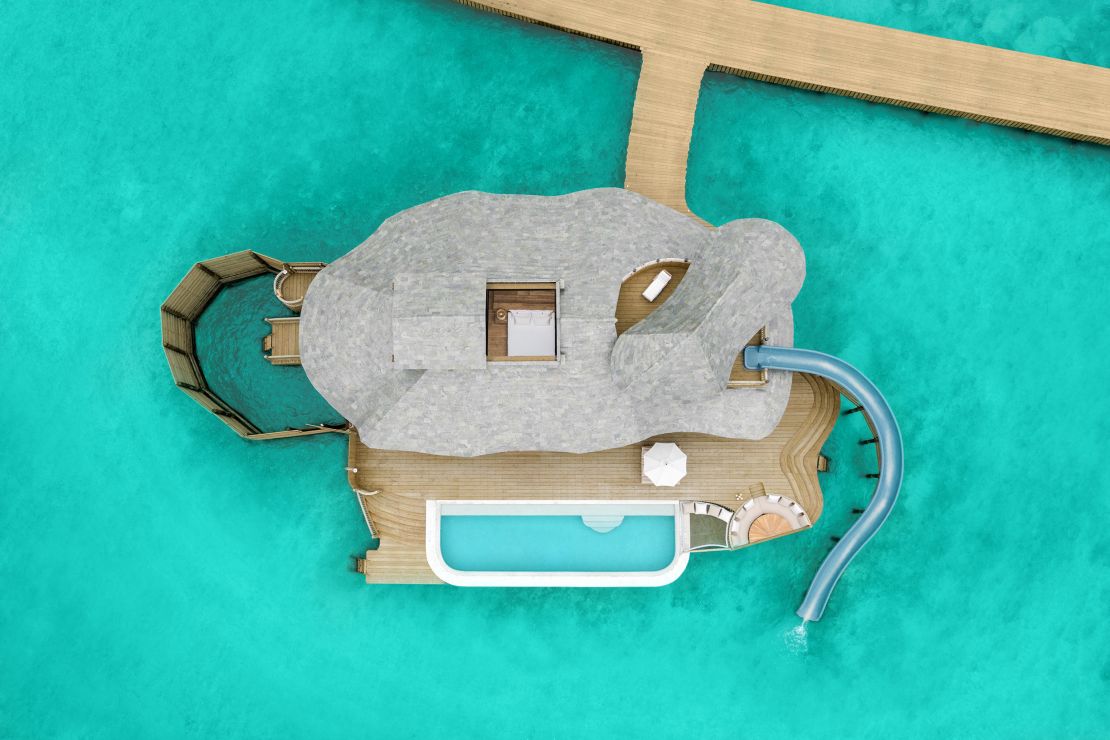
Soneva’s Maldives resorts – Soneva Fushi and Soneva Jani – are just two of a handful of resorts that conduct in-resort Covid testing for all guests as an extra layer of protection against the spread of the virus.
They provide these PCR tests at no additional cost, and supply substantial credit vouchers towards food, beverages and activities for the self-isolation inconvenience.
There are two post-test scenarios for Soneva guests: Covid-negative means one is clear to explore the island and its plethora of off-site activities carefree and mask-free.
Covid-positive results require a 14-day quarantine in one’s villa (with accommodation free of charge). Though I was relieved to have negative results, I couldn’t help but think that there are much worse places on Earth to recuperate for two weeks if the results were different.
After an early morning Whatsapp message from my butler stating my negative results, I spent the remainder of my visit experiencing the eco-luxe resort as I would in the pre-pandemic era: snorkeling alongside other guests with manta rays in clear lagoon water; indulging on tasty Maldivian and pan-Asian breakfast dishes at their beachside buffet and testing out my personal water slide in one of Fushi’s brand-new Water Retreats (the world’s largest overwater one- and two-bedroom villas) – all without needing to spray disinfectant on my swimming shorts.
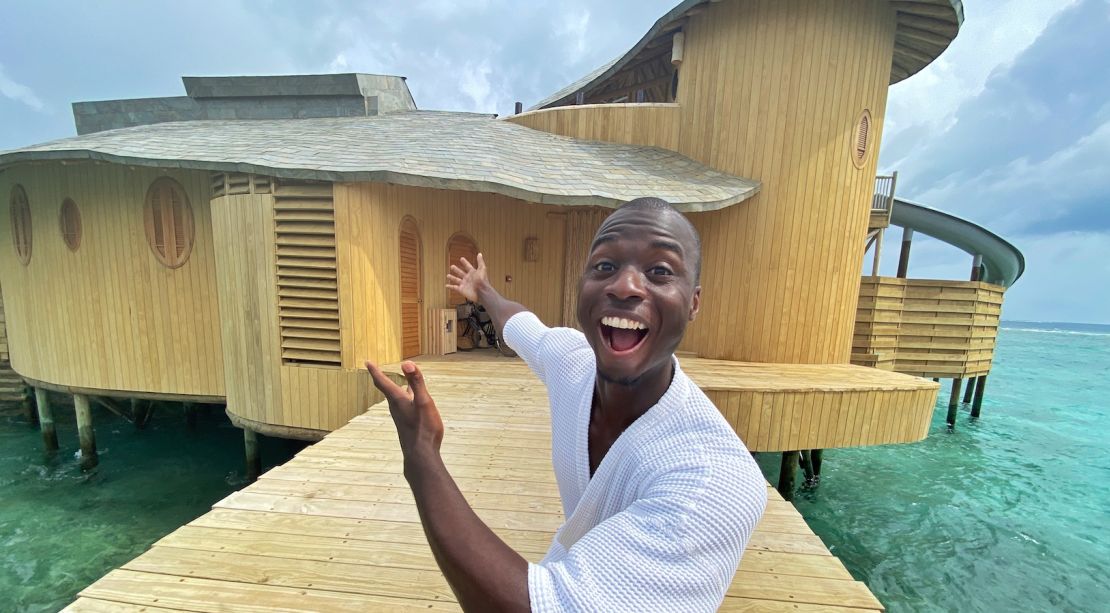
I’d fully get used to this newfound “freedom” by the time I arrived at my second resort, Soneva Jani, known for their sandcastle-style overwater villas with retractable roofs. Having already been tested at Soneva Fushi, there was no need to take another Covid test.
During my twin-resort trip – popular for Soneva guests even before the Covid era – the seaplane transfer between the two was the only time I had to wear masks before the end of my trip.
But traveling during the pandemic is a personal choice, and everyone has their own threshold.
I believe the Maldives has done a commendable job of preventing the spread of the virus and installing protocols to keep locals and travelers safe at all times; select resorts with in-villa testing like Soneva Fushi and Soneva Jani provide even more peace of mind.
The typical Maldives holiday finds travelers sequestering themselves in their villas anyway, spotting assorted fish from their decks, swimming and enjoying in-villa meals in their own personal bubble.
Depending on the resort, the Maldives offers a golden opportunity to feel ordinary again – for some, it’s worth traveling halfway around the world to experience such a long-lost sensation.
Travis Levius is a freelance travel writer, video host and content creator. You can follow his content on life, travel and the pursuit of happiness on Instagram and YouTube.


